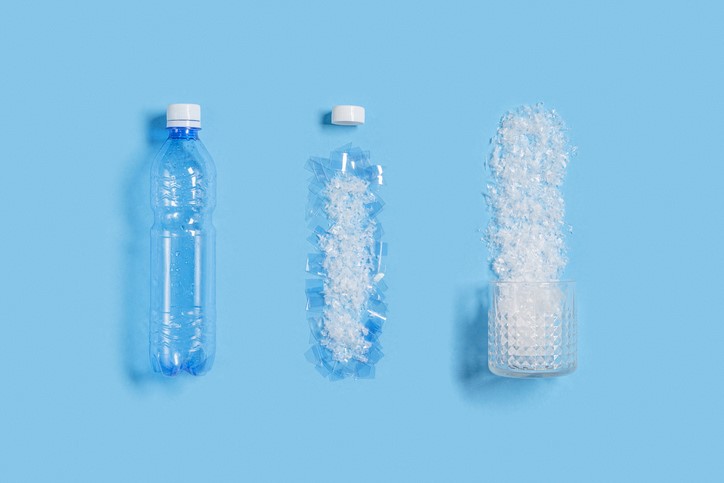In today’s health-conscious world, bottled water is often seen as the gold standard for clean drinking water. It’s convenient, widely available, and perceived as safer than tap. But recent studies are revealing a concerning truth—your seemingly pure bottled water may be laced with microplastics.
Recent research has revealed concerning levels of microplastics in human brain tissue. Notably, brains from individuals diagnosed with dementia contained up to ten times more microplastics than those from healthy individuals, suggesting a potential association between microplastic accumulation and cognitive decline.
What Are Microplastics—and Why Are They in Bottled Water?
Microplastics are tiny plastic particles less than 5mm in size, often invisible to the naked eye. These particles can enter bottled water during the packaging process, especially as bottles are made from polyethylene terephthalate (PET), a type of plastic that can shed microscopic fibers over time. Heat exposure, bottling techniques, and transportation stress only worsen the problem.
Studies have found that a single liter of bottled water can contain hundreds of microplastic particles. While the long-term health effects are still being researched, the presence of plastics in our drinking water is definitely not something most of us signed up for.
Bottled Water: The Cost of Convenience
There’s no denying that bottled water is affordable on the surface. You can grab a 24-pack for less than $5 at most grocery stores. But when you consider the cost over time, especially for a household that relies on bottled water daily, the numbers add up fast.
- A family of four drinking just one bottle per person per day racks up over 1,400 bottles a year.
- At even a modest $0.50 per bottle, that’s $700+ per year on water alone.
- Add in the effort of purchasing, storing, and disposing of all those bottles—not to mention the plastic waste—and the convenience starts to wear thin.
The Case for In-Home Filtration: Cleaner Water, Smarter Investment
Modern home water filtration systems have evolved far beyond the old pitcher-in-the-fridge model. From under-sink systems to whole-house filtration, today’s systems can deliver high-quality, microplastic-free water straight from your tap.
Here’s why it makes sense to invest in one:
- Health & Quality: Many advanced systems are certified to remove not just chlorine, heavy metals, and bacteria—but also microplastics and emerging contaminants.
- Cost-Effective: While the upfront cost of a home filtration system may range from a few hundred to several thousand dollars depending on the setup, it quickly pays for itself in bottled water savings within the first 1–2 years.
- Less Labor, More Convenience: No more lugging cases from the store, finding storage space, or dealing with recycling.
- Eco-Friendly: A home filtration system eliminates thousands of single-use plastic bottles over its lifespan, significantly reducing your carbon footprint.
ROI That’s Both Financial and Environmental
Consider this: a high-quality under-sink filtration system that costs $1500 and lasts 15 years costs just $100 per year—or less than $0.30 per day—for a family’s water needs. Compare that to $700+ per year on bottled water and the math becomes simple.
And the benefits go beyond dollars:
- Fewer plastic bottles means less landfill waste and ocean pollution.
- Less manufacturing and shipping equals reduced carbon emissions.
- Clean, filtered water becomes available on demand—any time, any day.
Bottom Line: It’s Time to Rethink the Bottle
While bottled water might seem like a quick fix for clean drinking water, it’s clear that it’s no longer the best choice when it comes to health, sustainability, and long-term cost. With microplastics becoming an increasing concern, now is the time to invest in a solution that delivers peace of mind and pure water—all without the plastic baggage.
Your tap is ready. You just need the right filter.
If you’re interested in clean water in your home – schedule a free, no-obligation in-home water analysis with an Artisanal Water local expert.
Call (704) 315-6344 or fill out our contact form.
